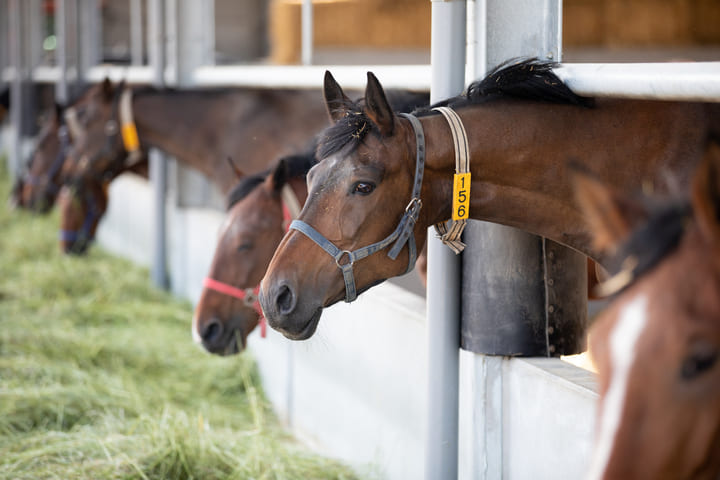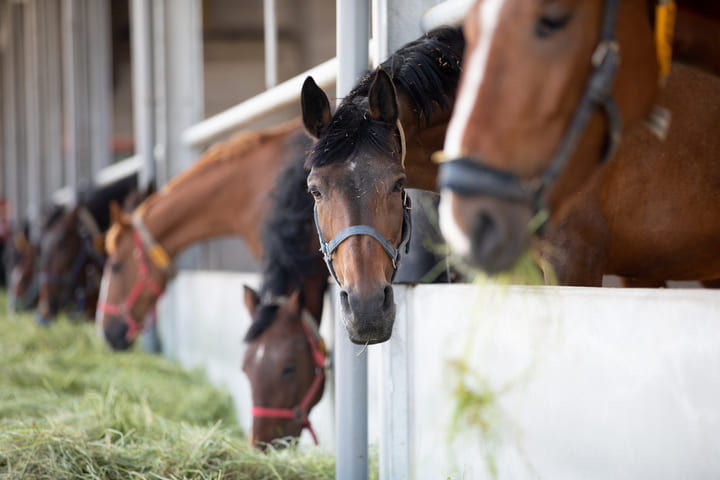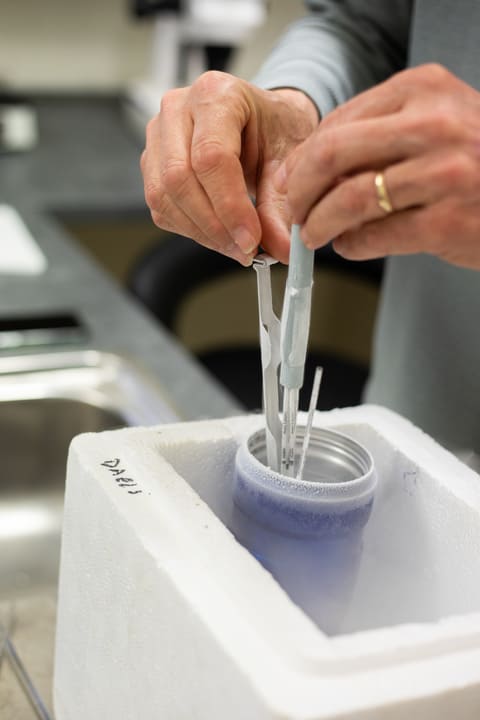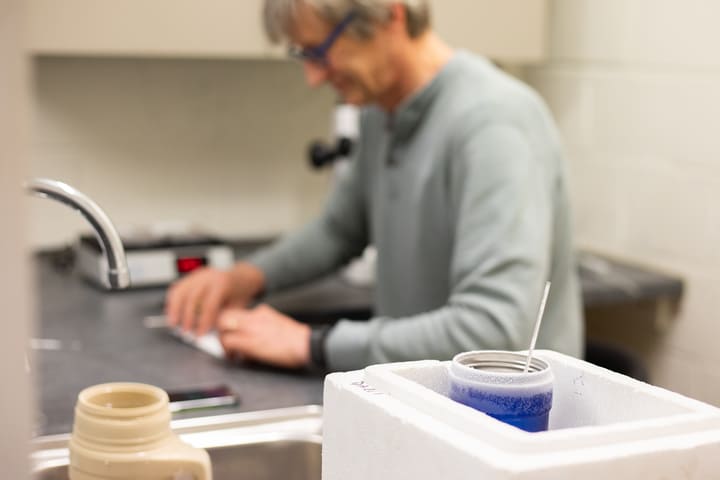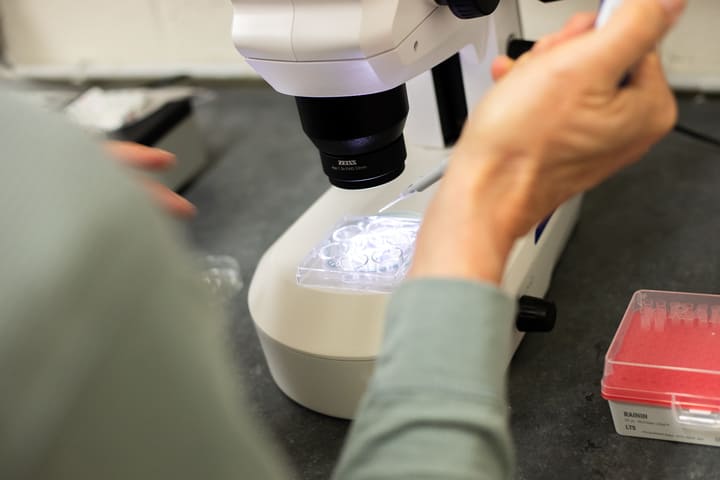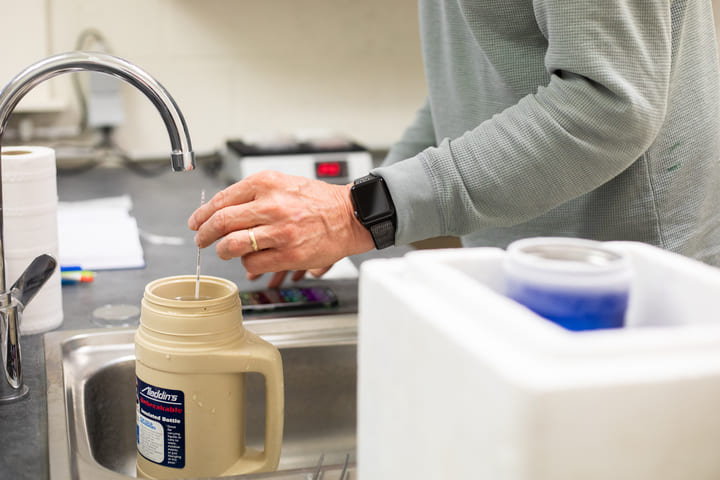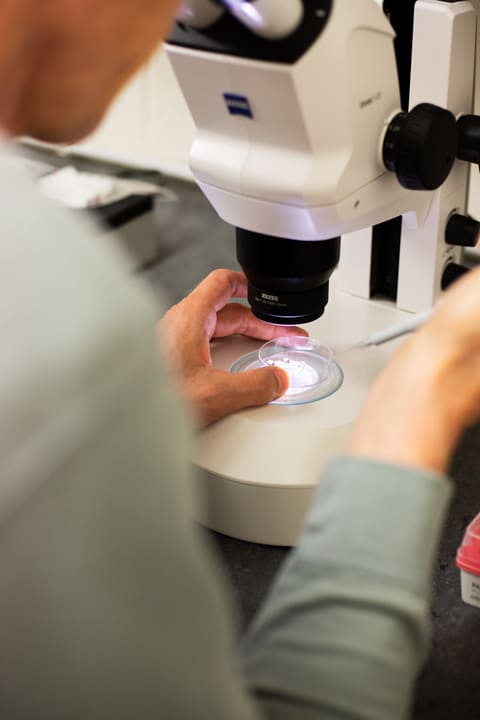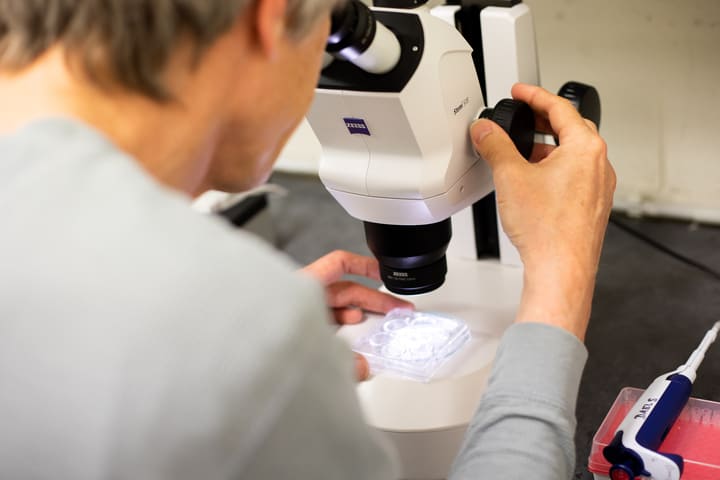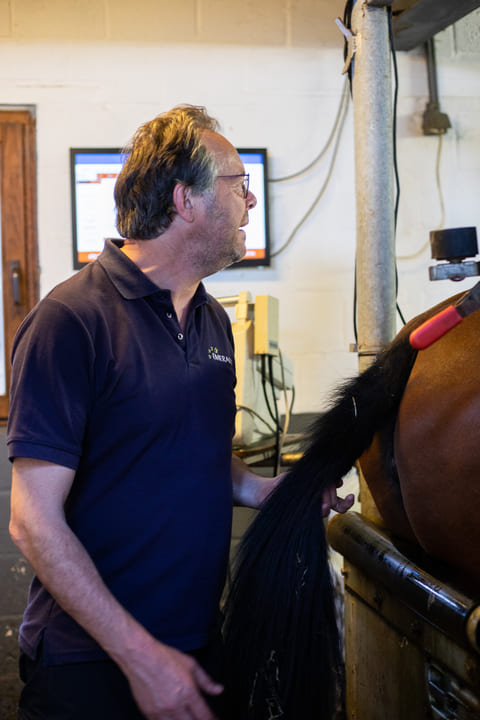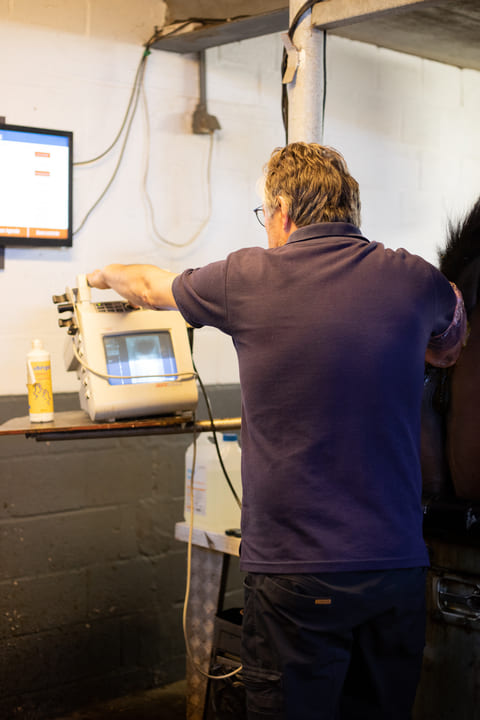
Who we are
We are a medium-sized embryo transfer center with 350 carefully selected recipient mares for the transplantation of fresh, transferred and ICSI embryos. A dedicated team and two highly motivated veterinarians with extensive experience in embryo transfer are available 24/7 to provide the best care for your future foals. Collectively, our veterinarians can look back on over 60 years of experience in equine reproduction and advanced reproductive techniques. With over 12,000 embryo flushes, and 10,000 successful transplants, we have a gold mine of experience available to provide the best care for your embryos. Over the past five years, we have succesfully expanded our services to ICSI embryos and have gained extensive experience with vitrified embryos (UGent and Equiception) as well as "slow-frozen" embryos (Avantea and Hans Hurkmans ET). We have successfully transplanted embryos originating from renowned ICSI centers such as Avantea, Hans Hurkmans ET, Equiception and the University of Ghent.
Our services
Since 2019, ETC Hans Smet has made recipient mares available for transplantation of equine embryos. We also offer a full embryo transfer service, including collection of embryos from donor mares, storage of frozen ICSI embryos and transplantation of fresh and transported embryos, as well as fresh and frozen ICSI embryos into carefully selected recipient mares. Because we are fully and solely dedicated to the supply of recipient mares and embryo transplantation, we can offer unparalleled expertise and services.


Hans Smet
Hans Smet graduated as a veterinarian at Ghent University and has been working as an equine veterinarian and reproduction specialist for 30 years. Hans mainly works with warmblood horses and trotters in the wider region around Ghent. He is also an enthusiastic horseman and occasionally active as a jockey in trotting races. Hans ensures the daily monitoring of recipient mares and embryo transfers. Hans is also the central point of contact for all questions regarding our services. In addition, Hans also oversees the day-to-day care of the recipient mares, the management of the stud farm and the production of our own high-quality horse feed on the farm.
Experience & expertise
Peter Daels has dedicated his entire veterinary career to equine reproduction. After graduating from the University of Ghent, Peter travelled around the world and specialised in modern reproductive techniques in mares. He was trained and recognised as a specialist in equine reproduction in the USA (DACT)(DECAR & DACT) during his residency at the University of California. For 10 years, he was professor of equine reproduction at Cornell University in the US, and director of equine research at the INRA institute in France. He has also spent 15 years in the private sector, first at Embryotechnic in Normandy, then at the Keros ET Centre in Belgium and currently at the ETC Hans Smet. Today, Peter divides his time between teaching, research at the University of Ghent, supervising the embryo transfer activities at ETC Hans Smet, and providing consultancy and embryo transfer services to veterinarians in and around Belgium. Peter has led more than 20 international courses on equine embryo transfer and is internationally recognised as a top expert on embryo technologies. He was also actively involved in the establishment of embryo transfer centres in France, Belgium, Egypt, Qatar, Sharjah, Kuwait, Iran and China.


Our recipient mares
We are very proud of our 350 carefully selected, healthy and fertile recipient mares that we make available. Our mares are housed in large, well-ventilated and bright stables, and pregnant mares go out to pasture as soon as the weather permits. Our pregnant mares are housed in small groups, which facilitates the development of small, stable social groups. Our mares have ample, easy, stress-free access to food and water. We attach great importance to the health, nutrition, body condition of our recipient mares. Because we are a relatively small company focused only on providing recipient mares, we know all our mares as individuals and know their personalities and individual needs. This allows us to act quickly and efficiently, ensuring that each horse gets the care it needs and deserves.
What results can you expect?
The number of pregnancies produced per donor mare depends on the fertility of the donor mare and her ability to produce embryos, but also and most importantly the fertility of the recipient mare. To achieve the best results, it is important that the management of donor mares and recipient mares is optimal and that the techniques for flushing, manipulation and transplantation of embryos are carried out under optimal conditions. The chances of successful transplantation depend also highly on the technical expertise of the veterinarian, but just as much on the fertility of the carrier mare.


Every embryo deserves the best possible chances
About 8-10% of all mares that become pregnant by conventional insemination lose their pregnancy in the first two months, a natural phenomenon. The same loss ratio is seen in healthy, young, fertile gestating mares and is even higher after transplantation of ICSI embryos. This early embryo loss is caused by developmental and genetic defects, and perhaps this is why these losses are more common in embryos from old mares and in vitro-produced ICSI embryos. Because of these seemingly unavoidable losses, it is essential to transplant embryos in a way that is close to perfection, a goal we aim for every day of the season. Our pregnancy rate per transfert is over 80% (at 17 days' gestation) and our overall end-of-season rate is consistently above 73% (at 45 days' gestation). We owe these results not only to our extensive technical experience and dedication, but also to the strict criteria we apply when selecting the recipient mare.
Fresh embryos, refrigerated transport of embryos and ICSI embryos
We can help you with your fresh and refrigerated-transported embryos and ICSI embryos. At ETC Hans Smet we offer carrier mares for the transplantation of fresh embryos, embryos transported with cooling and ICSI embryos.

